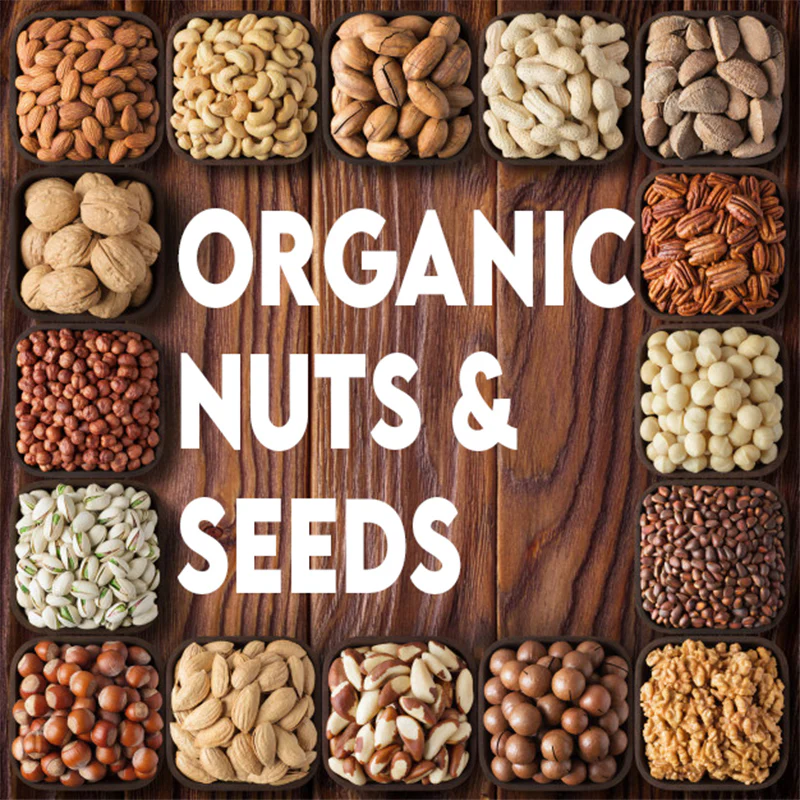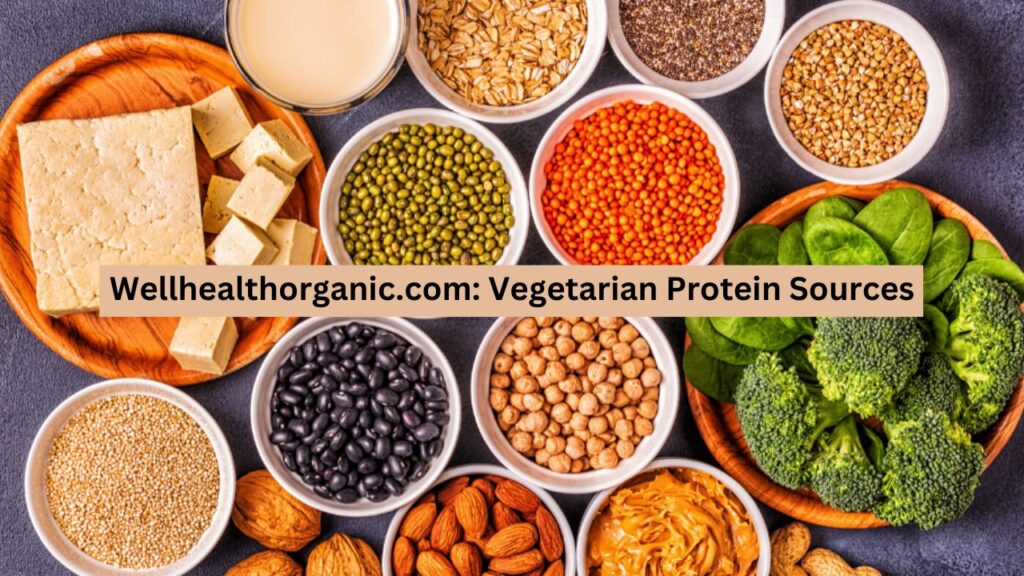In today’s health-conscious world, more people are turning to plant-based diets for their nutritional needs. Whether for ethical reasons, health benefits, or sustainability, vegetarianism is on the rise. One of the primary concerns many have when transitioning to a plant-based diet is how to get enough protein. The good news is that there are plenty of wellhealthorganic.com: vegetarian protein sources that can help meet daily protein requirements.
This guide provides a comprehensive look at the top wellhealthorganic.com: vegetarian protein sources, their benefits, and how they can be incorporated into a balanced diet.
Why Wellhealthorganic.com: Vegetarian Protein Sources
Protein is a macronutrient essential for building and repairing tissues, producing enzymes and hormones, and supporting overall body functions. While meat is traditionally seen as the primary source of protein, vegetarians can meet their protein needs through a variety of plant-based foods.
According to dietary guidelines, the recommended daily allowance (RDA) for protein is approximately 0.8 grams per kilogram of body weight. For those following a vegetarian diet, it’s crucial to include a variety of plant-based protein sources to ensure the intake of all essential amino acids.
Top Vegetarian Protein Sources
1. Legumes (Beans, Lentils, Chickpeas)

Legumes are among the best vegetarian protein sources, providing a high amount of protein per serving. They are also rich in fiber, vitamins, and minerals.
| Legume | Protein Content per 100g | Health Benefits |
|---|---|---|
| Lentils | 9g | High in iron, fiber, and B vitamins; great for heart health and digestion. |
| Chickpeas | 19g | Rich in iron, folate, and fiber; helps in weight management and blood sugar control. |
| Black Beans | 21g | Excellent source of antioxidants; supports heart health and promotes healthy digestion. |
| Soybeans | 36g | Complete protein source; contains all essential amino acids and is rich in antioxidants. |
2. Tofu and Tempeh

Derived from soybeans, tofu and tempeh are versatile, protein-rich foods that can be used in a wide range of dishes. Tofu has a mild flavor and absorbs spices well, while tempeh has a nuttier taste.
| Food Item | Protein Content per 100g | Health Benefits |
|---|---|---|
| Tofu | 8g | Low in calories; helps in maintaining muscle mass and is rich in calcium and iron. |
| Tempeh | 19g | Contains probiotics for gut health; provides calcium, iron, and a high dose of complete protein. |
3. Quinoa
Quinoa is a complete protein, meaning it contains all nine essential amino acids that the body cannot produce on its own. It’s also gluten-free, making it an excellent option for those with gluten intolerance.
| Grain | Protein Content per 100g | Health Benefits |
|---|---|---|
| Quinoa | 14g | High in antioxidants; promotes healthy metabolism and supports muscle repair and recovery. |
4. Nuts and Seeds

Nuts and seeds are not only high in protein but also provide healthy fats, vitamins, and minerals. They are a great snack or can be added to meals for an extra protein boost.
| Nuts/Seeds | Protein Content per 100g | Health Benefits |
|---|---|---|
| Almonds | 21g | High in Vitamin E; supports skin health and helps reduce cholesterol levels. |
| Chia Seeds | 17g | Rich in Omega-3 fatty acids; aids in digestion and promotes heart health. |
| Pumpkin Seeds | 19g | High in magnesium and zinc; supports immune function and bone health. |
| Flaxseeds | 18g | Contains lignans and Omega-3 fats; promotes heart health and may reduce inflammation. |
5. Dairy Products (For Lacto-Vegetarians)
For those who include dairy in their vegetarian diet, milk, yogurt, and cheese are excellent protein sources. These also provide calcium, which is essential for bone health.
| Dairy Product | Protein Content per 100g | Health Benefits |
|---|---|---|
| Greek Yogurt | 10g | High in probiotics; supports digestive health and is rich in calcium and Vitamin B12. |
| Cottage Cheese | 11g | Low in calories; great source of calcium and phosphorus, which are essential for strong bones. |
| Milk | 3.4g | Rich in calcium and Vitamin D; supports bone and muscle health. |
6. Whole Grains
While grains like rice and wheat are not particularly high in protein compared to legumes or tofu, combining them with other foods can create a well-balanced protein-rich meal.
| Grain | Protein Content per 100g | Health Benefits |
|---|---|---|
| Brown Rice | 2.6g | High in fiber; supports digestive health and stabilizes blood sugar levels. |
| Barley | 9.9g | High in fiber and essential minerals; aids in digestion and lowers cholesterol levels. |
| Buckwheat | 13g | Gluten-free; promotes heart health and helps in managing blood sugar levels. |
Combining Proteins for a Complete Amino Acid Profile

Many wellhealthorganic.com: vegetarian protein sources are not complete proteins, meaning they lack one or more essential amino acids. However, by combining different plant-based proteins, you can create a complete amino acid profile. Some popular protein combinations include:
- Rice and beans: Together, they form a complete protein source.
- Peanut butter on whole-grain bread: This snack provides all essential amino acids.
- Lentils and quinoa: When eaten together, they supply a well-rounded protein boost.
| Combination | Protein Content per Serving | Health Benefits |
|---|---|---|
| Rice and Beans | 7g (per 1 cup) | High in fiber, helps with digestion and provides energy. |
| Peanut Butter on Whole-Grain Bread | 12g (per sandwich) | Supports muscle repair and provides sustained energy due to the balance of carbs and protein. |
| Lentils and Quinoa | 18g (per meal) | Helps build muscle mass and improves digestion while keeping you fuller for longer. |
Benefits of Wellhealthorganic.com: Vegetarian Protein Sources
Incorporating Wellhealthorganic.com: vegetarian protein sources into your diet provides a wide range of benefits, including:
- Improved digestion: Many plant-based protein sources are high in fiber, which helps promote healthy digestion and prevent constipation.
- Lower risk of heart disease: A vegetarian diet rich in legumes, nuts, seeds, and whole grains has been shown to reduce the risk of cardiovascular diseases.
- Sustainability: Plant-based diets have a smaller environmental impact compared to meat-based diets, making them more sustainable for the planet.
- Weight management: Many vegetarian protein sources are lower in calories and saturated fats, making it easier to maintain a healthy weight.
Conclusion
Wellhealthorganic.com: Vegetarian protein sources are not only diverse but also packed with nutrients that support overall health and well-being. From legumes to nuts, grains, and dairy products, vegetarians have access to a variety of protein-rich foods that can meet their daily requirements. By incorporating these foods into your diet, you can ensure that you get the protein you need without relying on animal products.
Read Our More Blogs:

